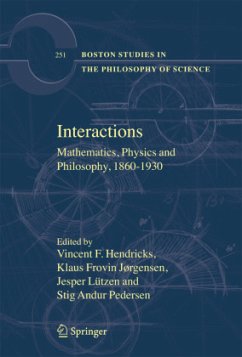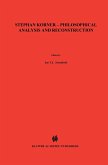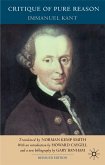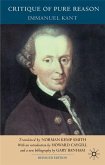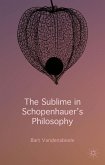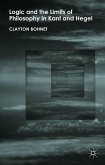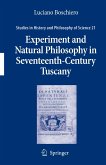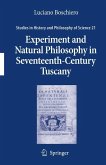This is an outstanding collection of original essays. All of them concern
the history and philosophy of mathematics and physics in the years from
1870 to 1930. More specifically, they are intellectual histories of the
interactions between the three disciplines, philosophy, mathematics and
physics, in that period. And as the essays bring out, what a period it
was: of both ferment and synergy, heat and light! Most of the
giants - especially Helmholtz, Hertz, Poincare, Hilbert, Einstein and
Weyl - are here: engaging not just in physics and mathematics but also in
philosophy, often together, or with figures like Schlick. The editors are
to be congratulated on a major contribution to our understanding of one
of the most complex but fertile periods in the history of all three
disciplines.
- Jeremy Butterfield, University of Cambridge
This stimulating volume covers a wide range of topics which are of direct interestto anyone who thinks about the curious relation between mathematics and the natural world. Philosophers often pose interesting questions about the "dispensability" of mathematics to science. But they too often overlook the wealth of philosophical perplexities that can arise in detailed examples and case studies, both contemporary and historical. This volume refocuses our attention by addressing a number of topics connected to applied mathematics, any one of which is worthy of every philosopher's attention.
- James Robert Brown, University of Toronto
What to make of neo-Kantianism in its hey-day, from 1840-1940? It was the most prolific of times and the most seminal, it was the most muddled and confused, it is philosophy working at its hardest with science and most damagingly against science.
It is examined here episodically, as it engaged individual scientists: Helmholtz, , Hertz, Poincare, Minkowski, Hilbert,Eddington and Weyl. If Einstein is not in their number, he had to contend with their influence, and anyway he transformed their agenda. The essays on these figures are glinting in their focus and scholarship. Whatever one thinks of neo-Kantianism, this book is history and philosophy of science at its best: mathematically and physically informed, historically engaged, and philosophically driven.
- Simon Saunders, University of Oxford
Ten first-rate philosopher-historians probe insightfully into key conceptual questions of
pre-quantum mathematical physics, from Helmholtz and Boltzmann, through Hertz and
Lorentz, to Einstein, Weyl and Eddington, with an interesting aside on the rarely studied
philosophy of Federigo Enriques. A rich and effective display of what the critical history
of science can do for our understanding of scientific thought and its achievements.
Roberto Torretti, University of Puerto Rico
the history and philosophy of mathematics and physics in the years from
1870 to 1930. More specifically, they are intellectual histories of the
interactions between the three disciplines, philosophy, mathematics and
physics, in that period. And as the essays bring out, what a period it
was: of both ferment and synergy, heat and light! Most of the
giants - especially Helmholtz, Hertz, Poincare, Hilbert, Einstein and
Weyl - are here: engaging not just in physics and mathematics but also in
philosophy, often together, or with figures like Schlick. The editors are
to be congratulated on a major contribution to our understanding of one
of the most complex but fertile periods in the history of all three
disciplines.
- Jeremy Butterfield, University of Cambridge
This stimulating volume covers a wide range of topics which are of direct interestto anyone who thinks about the curious relation between mathematics and the natural world. Philosophers often pose interesting questions about the "dispensability" of mathematics to science. But they too often overlook the wealth of philosophical perplexities that can arise in detailed examples and case studies, both contemporary and historical. This volume refocuses our attention by addressing a number of topics connected to applied mathematics, any one of which is worthy of every philosopher's attention.
- James Robert Brown, University of Toronto
What to make of neo-Kantianism in its hey-day, from 1840-1940? It was the most prolific of times and the most seminal, it was the most muddled and confused, it is philosophy working at its hardest with science and most damagingly against science.
It is examined here episodically, as it engaged individual scientists: Helmholtz, , Hertz, Poincare, Minkowski, Hilbert,Eddington and Weyl. If Einstein is not in their number, he had to contend with their influence, and anyway he transformed their agenda. The essays on these figures are glinting in their focus and scholarship. Whatever one thinks of neo-Kantianism, this book is history and philosophy of science at its best: mathematically and physically informed, historically engaged, and philosophically driven.
- Simon Saunders, University of Oxford
Ten first-rate philosopher-historians probe insightfully into key conceptual questions of
pre-quantum mathematical physics, from Helmholtz and Boltzmann, through Hertz and
Lorentz, to Einstein, Weyl and Eddington, with an interesting aside on the rarely studied
philosophy of Federigo Enriques. A rich and effective display of what the critical history
of science can do for our understanding of scientific thought and its achievements.
Roberto Torretti, University of Puerto Rico

